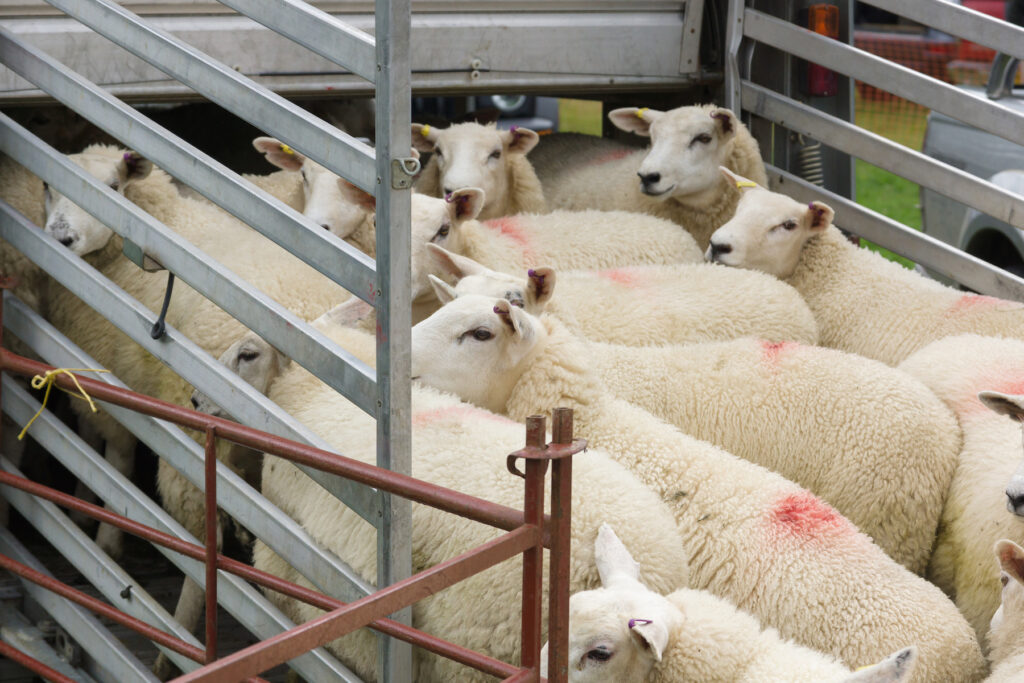Sheep scab a concern this sale season
25th August 2023
With breeding sheep being traded from farm to farm, often via marts, this month the risk period for sheep scab transmission is heightened, Ulster Farmers’ Union has warned.
There is a responsibility on buyers, sellers and marts to prevent the spread of scab, says UFU policy officer David McClure in a commodity watch update.
Visibly infected sheep should never be presented for sale either privately or at marts, until they are treated and fully recovered, he wrote.
As the Psoroptes ovis mite are difficult to see with the naked eye, it’s challenging for purchasers to identify animals that might already be playing host to a ‘potential nightmare’.
Intense itching and wool loss are amongst the earliest visible signs, but sometimes this only occurs months after the initial infestation.
Scab is highly contagious and symptoms can range from subclinical to severely symptomatic.
‘Farmers should remember that transmission can occur at other times of the year, and risk exists where infected sheep have shared a common space. Livestock trailers and scanning trailers are also common sources of infection. Thorough disinfection before and after use of such equipment will help to prevent spread,’ David wrote.
The main concern to members of UFU’s animal health and welfare committee is the limited number of effective treatment options available, due to resistance.
‘As such, the industry must act responsibly to protect the treatment options which remain effective. The consequences of having no effective treatment method would devastate the NI sheep flock,’ David warned.
Fears of such devastation are also present in Scotland, where a Perthshire show cancelled all livestock due to a scab outbreak in the area, according to press. Three neighbouring veterinary groups have launched an initiative to fight scab in the area, which has seen a huge uptake.
Top tips for preventing and managing sheep scab:
- Employ quarantine for all incoming stock to facilitate a period of careful monitoring. Blood tests can be used to confirm diagnosis if in doubt.
- Purchasing animals privately from known sources will reduce the risk of picking up the condition indirectly, through shared handling pens and races.
- It is illegal to use showers and jetters to apply organophosphate products as it is ineffective and encourages resistance.
Treatment options are ivermectin based injectable products (administered under strict conditions) or plunge dipping with organophosphate (OP) products.
There have been reports in some areas that injectables lack efficacy due to resistance. A recent NI pilot project found 25% of the flocks treated with injectable required subsequent dipping because of either resistance or a failure of injection technique.
This concerning finding has also been seen in Scotland, according to recent reports.
If in doubt about the presence of scab in your flock consult your vet immediately to confirm a diagnosis.
David concludes: ‘Whilst an outbreak of this notifiable disease will restrict movements within the flock, these restrictions are very temporary and will be removed following appropriate treatment.
‘There is no shame associated with an outbreak of scab on your farm. The only shame should be in not seeking appropriate help and guidance to promptly eradicate the condition.’

